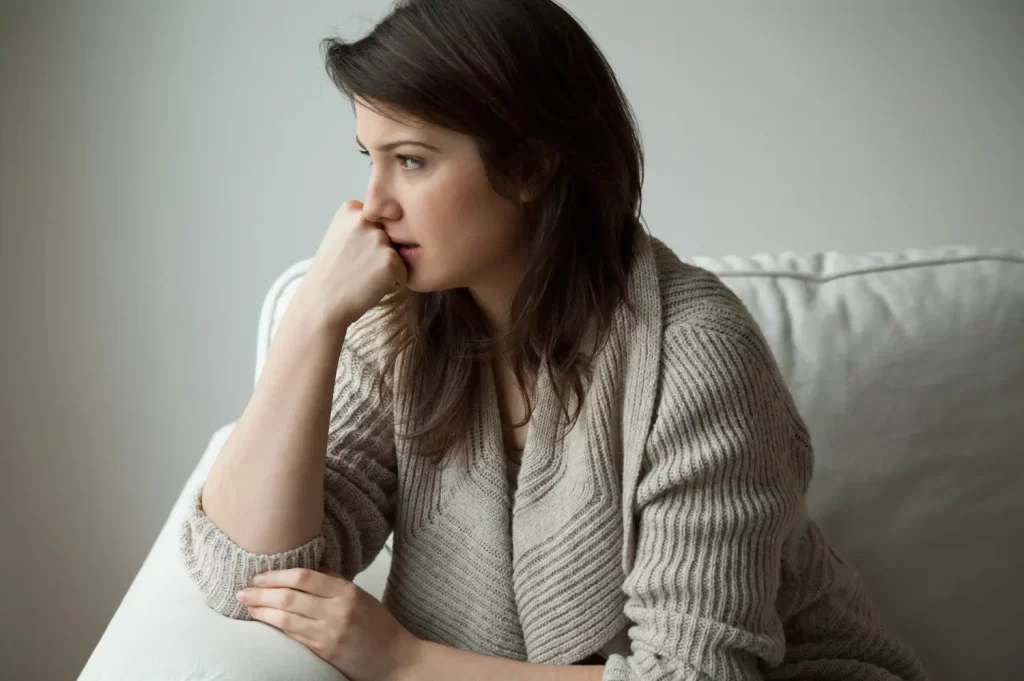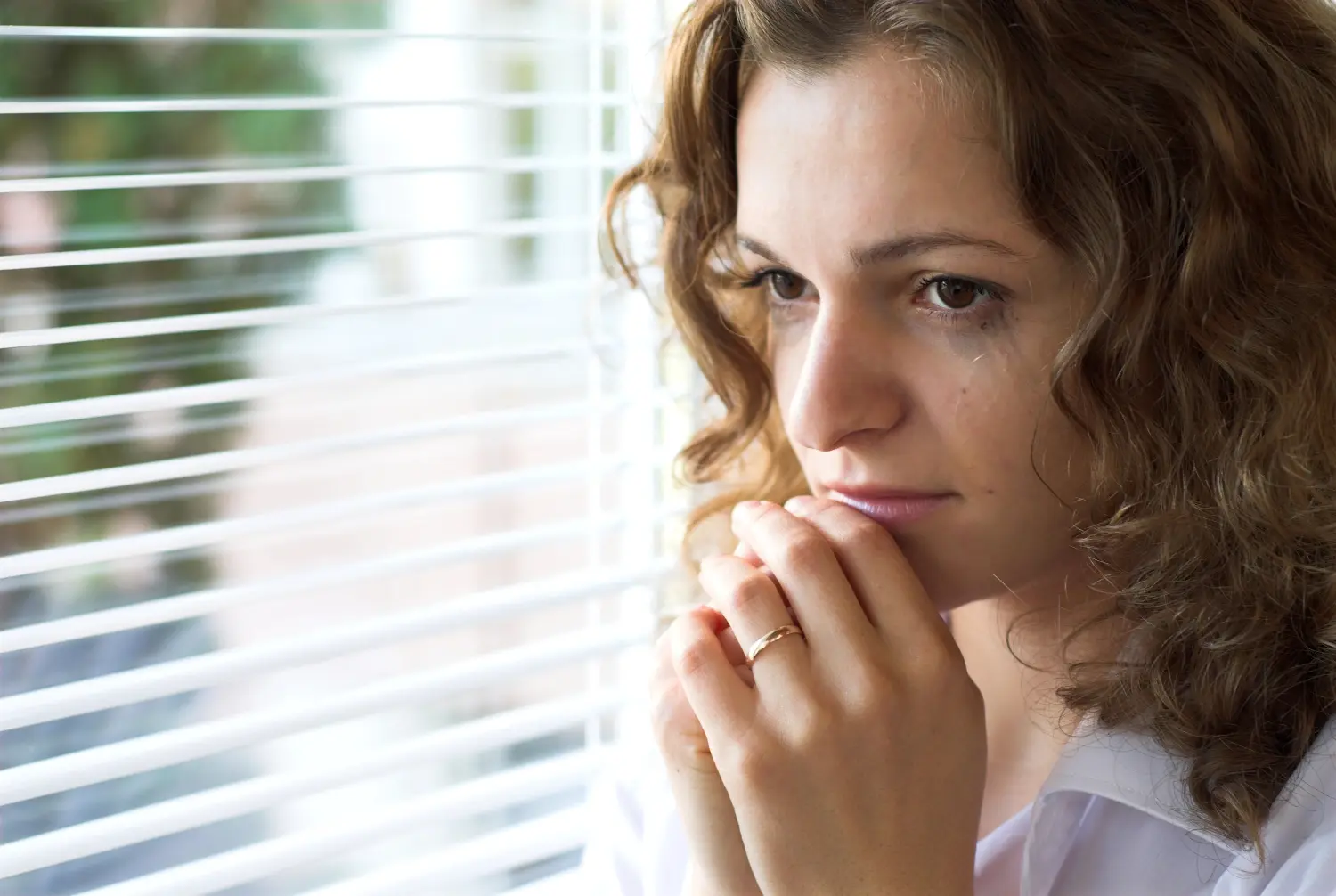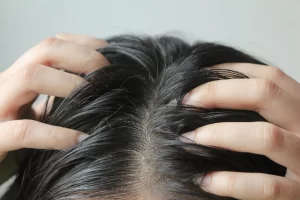
Menopause is a natural transition in a woman’s life, but it often comes with unexpected emotional challenges, especially anxiety.
As hormone levels fluctuate, many women experience heightened stress, panic attacks, or persistent feelings of unease. Understanding the connection between menopause and anxiety is the first step toward finding effective solutions that bring relief.
Many women are caught off guard by anxiety during menopause, even if they’ve never experienced it before. The root cause? Hormonal fluctuations—especially declining estrogen and progesterone—can directly impact brain chemistry, mood regulation, and stress responses.
Estrogen plays a key role in balancing neurotransmitters like serotonin and dopamine, which influence feelings of well-being. As estrogen levels drop, stress hormones like cortisol can become more dominant, increasing feelings of unease. Additionally, menopause symptoms such as hot flashes, night sweats, and insomnia can further heighten anxiety.
Women with a history of anxiety or sensitivity to hormonal changes (such as PMS or postpartum mood swings) may be more vulnerable. However, even those without prior anxiety can feel its effects. The good news is that there are many ways to reduce anxiety during menopause and regain a sense of calm.
Making intentional lifestyle changes can significantly help reduce anxiety during menopause and improve overall well-being. Here are some of the most effective strategies:
Movement helps regulate stress hormones and boosts mood-enhancing neurotransmitters like serotonin. For both mental and physical benefits, try yoga, walking, or strength training.
Reduce sugar and caffeine, as they can trigger anxiety spikes. Focus on whole foods rich in omega-3s (found in salmon, flaxseeds, and walnuts) to support brain health.
Deep breathing, guided meditation, and progressive muscle relaxation can calm the nervous system and reduce panic symptoms.
Establish a bedtime routine, limit screen time, and try magnesium or herbal teas to combat menopause-related insomnia.
Dehydration can exacerbate anxiety and fatigue, so aim for plenty of water throughout the day.
In addition to lifestyle changes, certain supplements and herbal remedies may help reduce anxiety during menopause by supporting hormonal balance and nervous system function.
While these remedies can be helpful, it’s important to consult a healthcare provider before starting any new supplement to ensure safety and effectiveness.

For some women, lifestyle changes and natural remedies may not be enough to reduce anxiety during menopause. In these cases, medical interventions can provide relief.
By replenishing estrogen levels, HRT can help stabilize mood and reduce anxiety. However, it’s important to weigh the risks and benefits with a healthcare provider.
These medications, commonly used for depression and anxiety, can also help manage menopause-related mood swings.
Some women prefer bioidentical hormone therapy, which uses plant-based compounds structurally similar to human hormones.
In some cases, doctors may prescribe anti-anxiety medications or beta-blockers for short-term relief from severe symptoms.
If anxiety is significantly impacting daily life, seeking medical advice is a crucial step. A personalized approach—combining lifestyle changes, natural remedies, and medical support—can offer the best results.
Beyond physical treatments, emotional well-being plays a crucial role in managing menopause-related anxiety. Building a strong support system and practicing mental health strategies can make a significant difference.
Talking to friends, family, or support groups can provide reassurance and reduce feelings of isolation. Many women find comfort in sharing their experiences with those who understand.
Cognitive Behavioral Therapy (CBT) is a proven method for managing anxiety by helping to reframe negative thought patterns. Speaking with a therapist can provide personalized coping strategies.
Writing down thoughts and emotions can help process feelings and track triggers that may worsen anxiety.
Menopause is a natural transition, not a flaw. Being kind to yourself and allowing space for rest and self-care can ease the emotional burden.
Hobbies like reading, painting, gardening, or listening to music can promote relaxation and serve as a healthy distraction from anxious thoughts.
Prioritizing mental health can lead to a more positive and empowered menopause experience.
Menopause-related anxiety can feel overwhelming, but with the right strategies, it is manageable. By understanding the connection between hormonal changes and anxiety, making lifestyle adjustments, and exploring supplements or medical treatments, you can find relief and regain a sense of balance.
Key Takeaways:
Menopause is a transition, not a destination—prioritizing your well-being during this time is essential. If you’re interested in learning more about hormone balance and natural stress management techniques, check out our other wellness resources.
Related Articles










* These statements have not been evaluated by the Food and Drug Administration. This product is not intended to diagnose, treat, cure or prevent any disease.